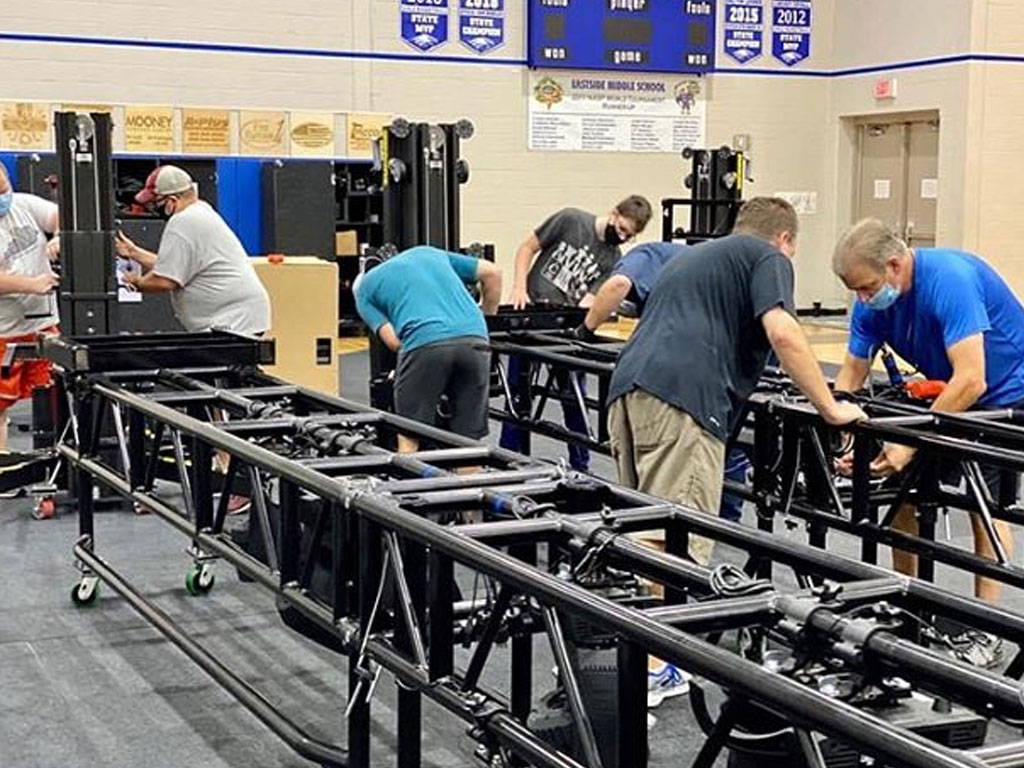Finding the right equipment for your portable church is no easy task. Space, storage, and transportation are a few of the factors you must take into account. In addition, setting up and tearing down equipment every week can be a unique challenge.
Focus on these seven key points to best equip your portable church and its specific needs.
1. Costs involved. Choosing the right portable equipment can save your church thousands of dollars, but costs don’t end with the equipment purchase. Don’t forget to consider these costs:
- Rent, utilities, and other expenses
- Storage and transportation
- Equipment repair due to wear and tear
- Replacement of equipment
2. Venue facilities and limitations. No two portable churches have the same equipment needs. For example, a church that meets in a school may not need chairs, whereas a movie theater church might not require a projector and staging.
Before you choose any equipment or use the facility’s systems, ask the following questions:
- Will the setup be the same each week? Or, will we need to move our equipment to different parts of the facility?
- What are the landlord’s expectations regarding payment for any damage or repairs of equipment?
- If we need to use another part of the facility, will we be able to move the permanently installed equipment there?
- Will the facility’s electrical capacity be able to handle all the equipment?


3. Setting up and tearing down. Installing and packing equipment is a key element of the portable church experience. While this weekly exercise encourages a healthy volunteer culture, it can be tiring and frustrating for your team. You can avoid such fatigue by ensuring your equipment allows for efficient and easy setup and teardown.
Before zeroing in on the equipment for your mobile church, here are a few crucial considerations:
- How much time will it take to set up and tear down this equipment?
- How many people will be on the team handling these tasks?
- Will it be easy for volunteers to carry equipment in, around, and out of the building?
- Does handling this equipment require special skills? Or, can volunteers be easily trained to install, use, and put it away?
4. Proper storage. Storage (or the lack of it) is a key determining factor when choosing your portable church equipment. While a few rented venues offer on-site storage, most will require your equipment be brought in and taken out each week. Therefore, it is important that the equipment you choose allows you to:
- Store it in a safe manner.
- Stay within your allotted storage space.
- Keep your storage space costs to a minimum.
- Maintain some free space for storing additional equipment.
5. Efficient transportation. The weight, size, and volume of your portable church equipment have a direct impact on transportation logistics. Ask these key questions beforehand:
- Is the facility accessible via both stairs and elevators?
- Will the team be able to load and unload the equipment in the truck or trailer safely and efficiently?
6. Durability and safety. The life of the equipment is another important factor. Sometimes it’s wise to invest in slightly more expensive equipment if it will last longer. Consider the following:
- Must the equipment be upgraded every few years?
- Is it made with safe and durable material? Will it withstand the rigors of the road, and will it sustain weekly setup and occasional drops?
7. Appeal and comfort. Finally, your equipment will be used by your teams every week. Therefore, it’s key to ensure they can use it comfortably and efficiently and have fun while doing so! Make sure the equipment checks these boxes:
- Comfort
- Appeal
- Ease of use
- Durability

For more than 25 years, Portable Church® Industries has helped thousands of churches launch strongly and thrive in a mobile setting. They design custom solutions that fit each budget, vision, and venue. Portable Church is a valued Resource Partner with ARC. To learn more, visit portablechurch.com.





